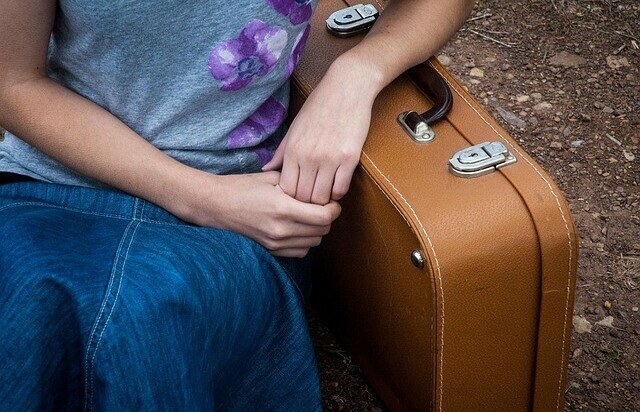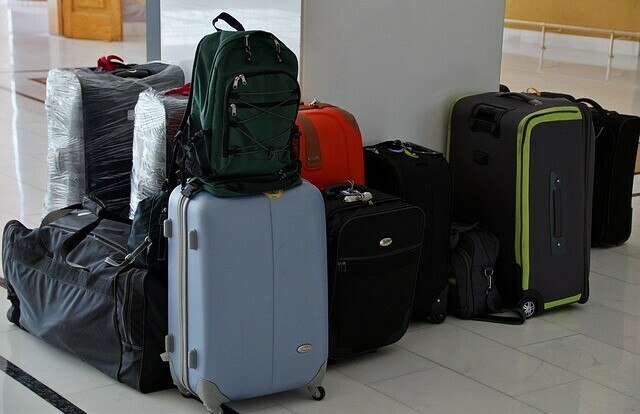Arranging your initial travel experience can be a thrilling and daunting task. As new travellers, it can be intimidating to learn the ins and outs of the travel industry. Mistakes ranging from cultural faux pas to packing errors are frequent among novices.
We’ll walk you through the most important parts of packing for a trip and offer advice on how to stay out of trouble in this post. We can help you with any mistakes you make, whether they are safety or budgetary-related. You can set out on your adventure with confidence and get the most out of your travel experience by taking note of the mistakes made by others.

Planning and Preparation Mistakes by New Travellers
Planning is crucial for a successful travel experience. Common mistakes include forgetting to do thorough research or struggling with overstuffed bags. By addressing these errors early, new travellers can make their trips easier and more enjoyable.
Not Researching Destination
New travellers often make the mistake of leaving their destination without extensive study, missing out on important details like transportation options and local customs. Learning about language, culture, and traditions is crucial.
- Research. Researching your destination efficiently aids in planning your itinerary, ensuring you don’t miss out on top attractions, restaurants, and activities, and saving time and money.
- Transportation. Understanding the local transportation system can save you time and money during your trip.
- Travel concerns. Check safety concerns and travel advisories for your destination, stay informed about potential risks, and take necessary precautions to ensure your safety while travelling.
- Reputable sources. Use trustworthy sources like government travel websites and reputable forums to obtain accurate and current information about your destination.
Overpacking: Tips for the New Traveller

Overpacking during travel can cause stress and discomfort. To avoid this, create a list of essential items for your vacation to avoid overpacking. Here are some things to consider:
- Consider the weather and activities. Pack adaptable attire for weather and activities. Minimize unnecessary items, and remember you can always buy forgotten items or wash laundry when reaching your destination.
- Maximize space. Choose lightweight, multipurpose items, roll garments instead of folding, and buy travel-sized toiletries and accessories to maximize suitcase space and avoid wrinkles.
- Check weight regulations. Remember that many airlines have tight baggage regulations, and going over weight limits can cost you a lot of money.
Ignoring Travel Insurance
Travel insurance provides financial security and peace of mind for unexpected events, including medical emergencies and trip cancellations, making it an essential investment.
- Medical emergencies. Travel insurance can cover exorbitant medical bills and emergency medical evacuation costs in high-priced countries, ensuring travellers can cover these costs and protect themselves.
- Reimbursement for non-refundable expenses. This can come in handy in case of unforeseen events like illness, injury, or natural disasters, allowing you to recoup your investment and avoid financial loss.
- Miscellaneous. Travel insurance covers travel delays, misplaced or stolen luggage, and accidents, providing financial protection and ensuring a safer, more comfortable trip.
Budgeting Blunders by New Travellers

It’s time to discuss the importance of effective money management for a successful vacation, highlighting common mistakes made by new travellers. This will include advice on budgeting, underestimating costs, overspending on tourist traps, and ensuring financial peace of mind during trips.
New Travellers Underestimating Expenses
New travellers often underestimate expenses, leading to financial loss. Proper budgeting involves thorough research on lodging, transportation, food, activities, and other expenses to avoid unexpected expenses.
- Incidental costs. Factor in supplemental expenses like taxes, tipping, souvenirs, and entry fees when planning a trip, as overestimating spending is preferable to being unprepared for unforeseen expenses.
- Create a detailed budget. Track expenses, use spreadsheets or budgeting apps, and prioritize expenses for a budget-friendly vacation.
New Travellers Not Using Budgeting Apps
New travellers often overlook the importance of budgeting applications, which can significantly help monitor spending, control finances, and ensure financial stability while travelling.
- Keep track of spending. Budget apps enable users to set spending limits for various expenses, provide real-time updates, and alert them when they’re nearing or exceeding their budget, thereby preventing overspending.
- Useful features. Budget apps offer features like currency conversion, expense categorization, and receipt scanning, simplifying financial management. Some sync with bank accounts or credit cards, providing insights into spending habits.
- Manage finances. Budget apps simplify financial management by offering features like currency conversion, expense categorization, and receipt scanning, and some sync with bank accounts or credit cards for spending habits insights.
- Financial goals. Budget apps assist in tracking financial progress and identifying areas for cost reduction to save money.
Overspending on Tourist Traps
New travellers often overspend on tourist traps, expensive attractions and events. It’s crucial to monitor spending to avoid going over your budget.
- Research local. Explore local attractions and experiences off the beaten path for authentic, affordable experiences, seeking community recommendations and lesser-known gems to avoid tourist traps.
- Buy online. Consider online ticket or tour booking for cost-effectiveness and exclusive discounts on events and attractions, including combo packages, group pricing, and student discounts.
- Avoid touristy restaurants. Opt for local cuisine and dining experiences over tourist-oriented restaurants, as they are typically more expensive.
Cultural Missteps by New Travellers
Many new travellers experience common cultural blunders. How can we handle cultural differences amicably?
Here we will look at understanding local customs and dressing correctly, enhancing immersion without offending, and promoting cultural sensitivity to ensure exciting and culturally enriching travel experiences.
Disrespecting Local Customs
Disrespecting local customs during travel can lead to anger and hinder community integration, as it may not match personal traditions and social etiquette.
- Research local customs. Learn about cultural norms and etiquette before travelling to avoid offending others. Be mindful of proper handshakes, salutations, and public conduct, as certain behaviours may be frowned upon.
- Learn to adapt. Be flexible and adapt to regional traditions, even if they conflict with personal values. Be considerate of others’ way of life and observe their behaviour when unsure about a custom.
- Consider how your behaviour affects the locals. Local interpretations of your activities and actions could be perceived as impolite or offensive, such as loud public speaking or disobeying regional clothing codes.
Failing to Learn Basic Phrases

New travellers often make cultural errors by not learning basic phrases in local languages, which can earn respect and goodwill from the community, despite English being the primary language.
- Learn basic phrases. Learning basic language expressions like hello, please, thank you, and pardon me can improve daily communication and earn appreciation from residents, even with imperfect pronunciation.
- Enhance your cultural experience. Acquiring basic language skills enhances real-world interactions, and cultural understanding, and allows for deeper interaction with people, enhancing communication and understanding in various situations.
- Take advantage of learning apps. Use tools like phrasebooks, online courses, and language learning apps to learn local phrases, enhance communication skills, and become more conversant in common words before your trip.
Ignoring Dress Codes
Ignoring local dress regulations can be a cultural faux pas, as different cultures have different fashion codes, making something appropriate in one setting potentially offensive or unacceptable in another.
- Do your research. Before leaving, familiarize yourself with your destination’s customs and attire, including local dress codes, modesty requirements, and religious conventions, such as covering your knees and shoulders.
- Observe the locals. Wear local style cues and consider packing a scarf or shawl for cover-up, especially in places of worship or dress-rule areas.
Safety and Security Errors by New Travellers
Travelling safely is crucial, but many new travellers overlook basic measures. This section discusses common mistakes made by tourists and offers advice on navigating unfamiliar environments, such as protecting belongings and being wary of strangers. Immediate action can enhance your trip experience without risking your health.
New Travellers Not Securing Valuables Properly
You run the risk of losing or having your belongings stolen if you don’t properly safeguard them when travelling.

- Carry money safely. Secure your money belt or travel wallet by wearing it covertly beneath garments, making it difficult for pickpockets to steal your credit cards, cash, and important documents.
- Lock up valuables. Secure your belongings in a safe or locker before leaving your accommodations, and if necessary, store them in your baggage or a small travel safe.
- Be aware of your surroundings. Maintain a vigilant eye on your surroundings, avoid crowded or dangerous areas when displaying expensive items, keep your possessions close, and be cautious of potential thieves.
- Use gear with security features. Use anti-theft bags or backpacks with security features like locking zippers, slash-proof straps, and RFID-blocking pockets to deter criminals from stealing your belongings while out and about.
Trusting Strangers Blindly
Trusting strangers blindly is a significant safety blunder during travel. Despite potential kindness, caution is crucial to ensure your safety.
- Keep personal information to yourself. Avoid sharing personal information with strangers while travelling, especially if they seem interested in your plans or inquire about your personal life.
- Trust your instincts. Trust your gut when accepting strangers’ help, especially if it seems suspicious or too good to be true.
- Be alert for scams. Avoid tourist scams like posing as tour guides, unlicensed taxi drivers, and false goods/services. Choose trustworthy companies and authorized transportation providers to reduce fraud risk.
- Exercise caution when solo travelling. Travelling alone can be liberating and fulfilling, but requires alertness, trust in instincts, and prioritizing safety.
Health and Wellness Oversights
Many new travellers fail to prioritize their health and well-being while travelling, endangering their health. Here we will discuss common mistakes and offer advice on staying safe and healthy while visiting new places, including vaccination obligations and adequate water intake.
Not Staying Hydrated
Dehydration, a common mistake during travel, can lead to severe health issues such as headaches, lightheadedness, exhaustion, and even more severe health issues.

- Drink lots of water. Ensure daily water intake, especially during exercise or outdoor activities, by carrying a reusable bottle and regularly filling it with clean, safe water.
- Monitor symptoms. Water requirements vary based on activity, weather, and health. Monitor dehydration symptoms like weariness, dark urine, dry mouth, and thirst, and drink plenty of water.
- Avoid excessive alcohol or caffeine. Consume hydrating foods and beverages like fruits, vegetables, and electrolyte-rich drinks, along with water, to replace lost fluids and minerals.
Ignoring Vaccination Requirements
Many new travellers overlook vaccination requirements for their destination, endangering their health and others’ safety, as not getting the necessary vaccines is crucial for defending against infectious diseases.
- Plan. Consult a medical professional for necessary vaccinations and keep up-to-date on immunizations. Consider specific vaccinations for destinations, planned activities, and personal health history. Plan early as some may require multiple doses or take time to become effective. Remember to schedule vaccinations several weeks before departure, to ensure full protection.
New Travellers Overexerting Themselves
Overexertion during travel can lead to weariness, discomfort, and damage. To avoid this, it’s essential to pace yourself and monitor your body’s cues.
- Plan your itinerary. To prevent burnout, schedule your days with sufficient rest, prioritize important tasks, and remember that slowing down and taking pauses is acceptable.
- Pay attention to physical limitations. Exercise caution when engaging in strenuous activities, paying attention to your body’s signals, taking breaks when needed, and ensuring adequate water intake.
Conclusion
Planning, caution, and mindfulness are crucial for a safe and enjoyable travel experience. Avoid ignoring safety precautions, cultural norms, and health concerns.
Do your research, follow local traditions, and prioritize your health by drinking water, getting immunizations, and limiting physical activity.
Proactive measures and learning from mistakes can enhance travel experiences, reducing potential hazards and ensuring memorable interactions.

